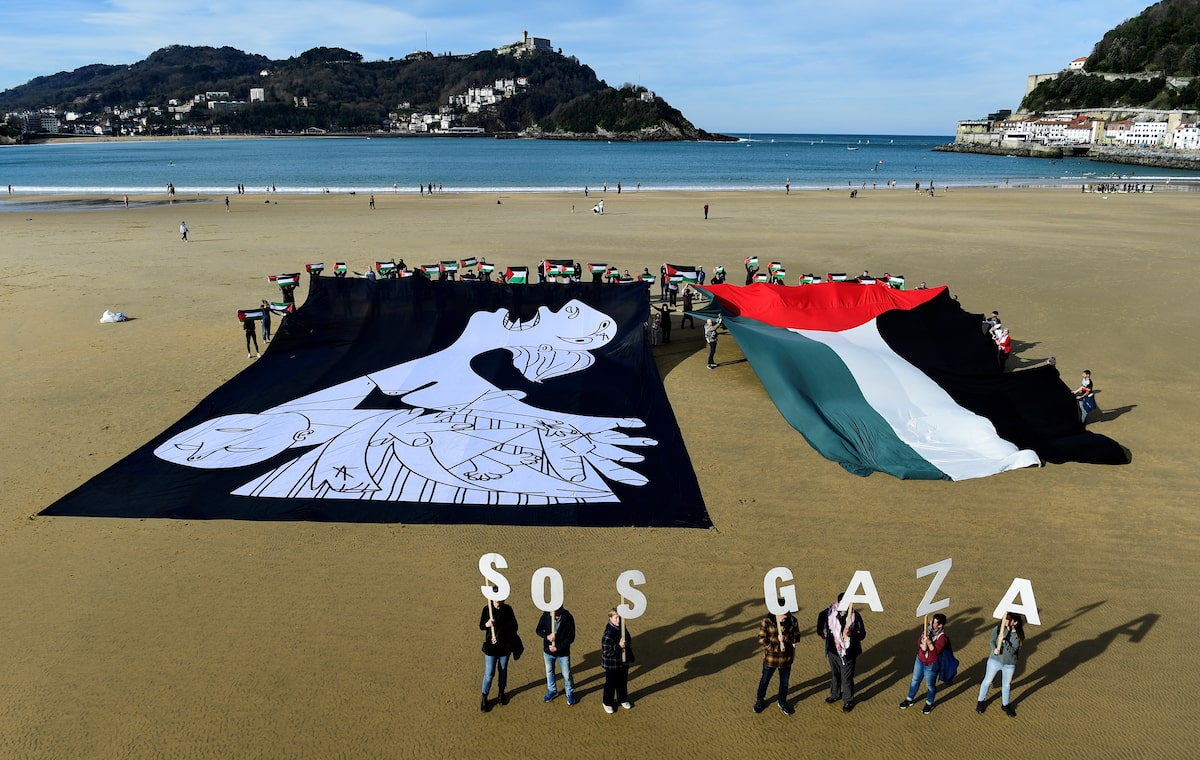




The recent terrorist attack by Hamas in Israel has sparked a call for the end of the Hamas regime in the Gaza Strip [3133b5ec]. The author of the article emphasizes the high number of innocent Israeli civilians who were murdered and the atrocities committed during the attack [3133b5ec]. They highlight the need for justice and support for the Israel Defense Forces in liberating Gaza from Hamas [3133b5ec]. The author concludes with a prayer for the release of hostages and the enemies of peaceful coexistence to be brought to justice [3133b5ec].
In a different perspective, an op-ed titled 'Americans, Please Help End the Gaza War' by Yoni Kallay, Zehava Chen-Levy, Gad Levy, Hadar Iron, Ra'anan David, and Assaf Oron, published in Seattle's The Stranger, explores the ongoing war in Gaza between Israel and Hamas [7b79aad4]. The authors express their horror and outrage at the acts of Hamas and other militants during the Israeli-Arab war, criticizing the Israeli government's response and its exploitation of the war for political gain [7b79aad4]. They highlight the high civilian death toll in Gaza, particularly among women and children, and argue that the Israeli government's claims of unintentional harm are contradicted by the situation on the ground [7b79aad4]. The authors also discuss growing protests in Israel against the government's handling of the war and the presence of Jewish-supremacist elements within the coalition [7b79aad4]. They call on President Biden to take effective steps to stop the bloodshed and criticize the lack of attention and action from Daily Kos and the Democratic leadership [7b79aad4]. The authors emphasize the need to end the occupation regime and the travesty of jailing an entire population indefinitely [7b79aad4]. They urge readers to take action and support efforts to pass a ceasefire resolution [7b79aad4].
The article 'Guilt may be good if it helps Gazans' by Olivia Turner explores the ongoing war in Gaza between Israel and Hamas [54154836]. The author expresses a sense of guilt and empathy for the suffering of innocent Palestinians [54154836]. They believe that feeling guilt is a good thing as it shows compassion and care [54154836]. The author also highlights the concerning desensitization of society to such violence [54154836]. While individuals may feel powerless to stop the conflict, the author encourages collective efforts such as writing to Congress for a cease-fire, supporting Palestinian-owned businesses, and spreading awareness [54154836]. The author urges readers to use their sense of conviction to help in whatever way they can [54154836].
The decision by the editors of the literary magazine Guernica Magazine to retract an essay about the Israeli-Palestinian conflict reveals much about how the war is hardening human sentiment [5e4f7aa4]. The essay, titled 'From the Edges of a Broken World,' written by Joanna Chen, explores her principles and feelings of fear, inadequacy, and split allegiances in the aftermath of the conflict [5e4f7aa4]. The essay includes a conversation with a neighbor in Israel who refers to the sound of warplanes as 'good booms' to comfort her frightened children [5e4f7aa4]. The essay faced backlash from the staff of the magazine, resulting in resignations and the retraction of the essay [5e4f7aa4]. The incident highlights the polemical and moralistic approaches to literature in elite American literary outlets [5e4f7aa4]. The retraction has been seen by some as an act of cowardice and a betrayal of the task of literature [5e4f7aa4]. Empathy is seen as a tool to understand the complexities of war and the perspectives of all parties involved [5e4f7aa4]. The essayist argues that literature should not shy away from messy realities and should strive to depict the human terrain of war [5e4f7aa4].
In a recent opinion piece titled 'A literary magazine’s collapse reveals the censorship the Israel-Hamas war has wrought' by Marsha Lederman in The Globe and Mail, the author discusses the collapse of Guernica Magazine following the publication of an essay by Joanna Chen [d09504f3]. The essay, titled 'From the Edges of a Broken World,' explores the Israeli perspective and the coexistence with Palestinians [d09504f3]. The essay faced criticism and resulted in mass resignations from the magazine [d09504f3]. Guernica Magazine retracted the essay and expressed regret for publishing it, raising questions about censorship and the silencing of voices in the Israel-Hamas war [d09504f3]. The incident highlights the importance of hearing all perspectives and challenges the black-and-white discourse surrounding the conflict [d09504f3]. The author draws a parallel to Picasso's anti-war mural, 'Guernica,' and argues that art about the Hamas-Israel war is urgently needed and should not be covered up [d09504f3].